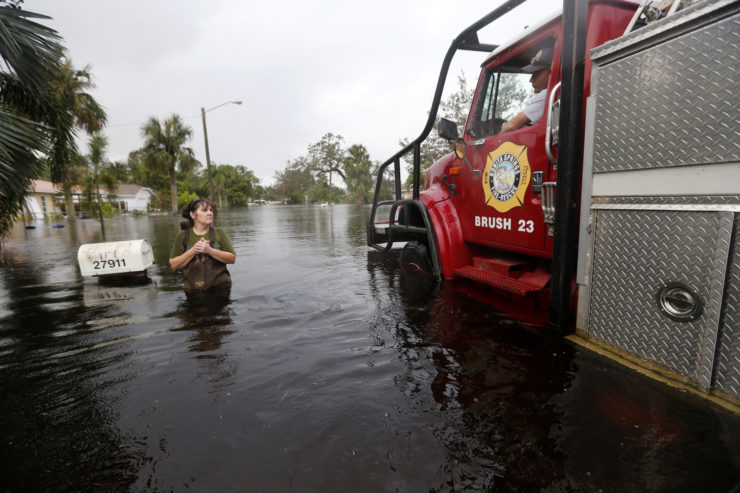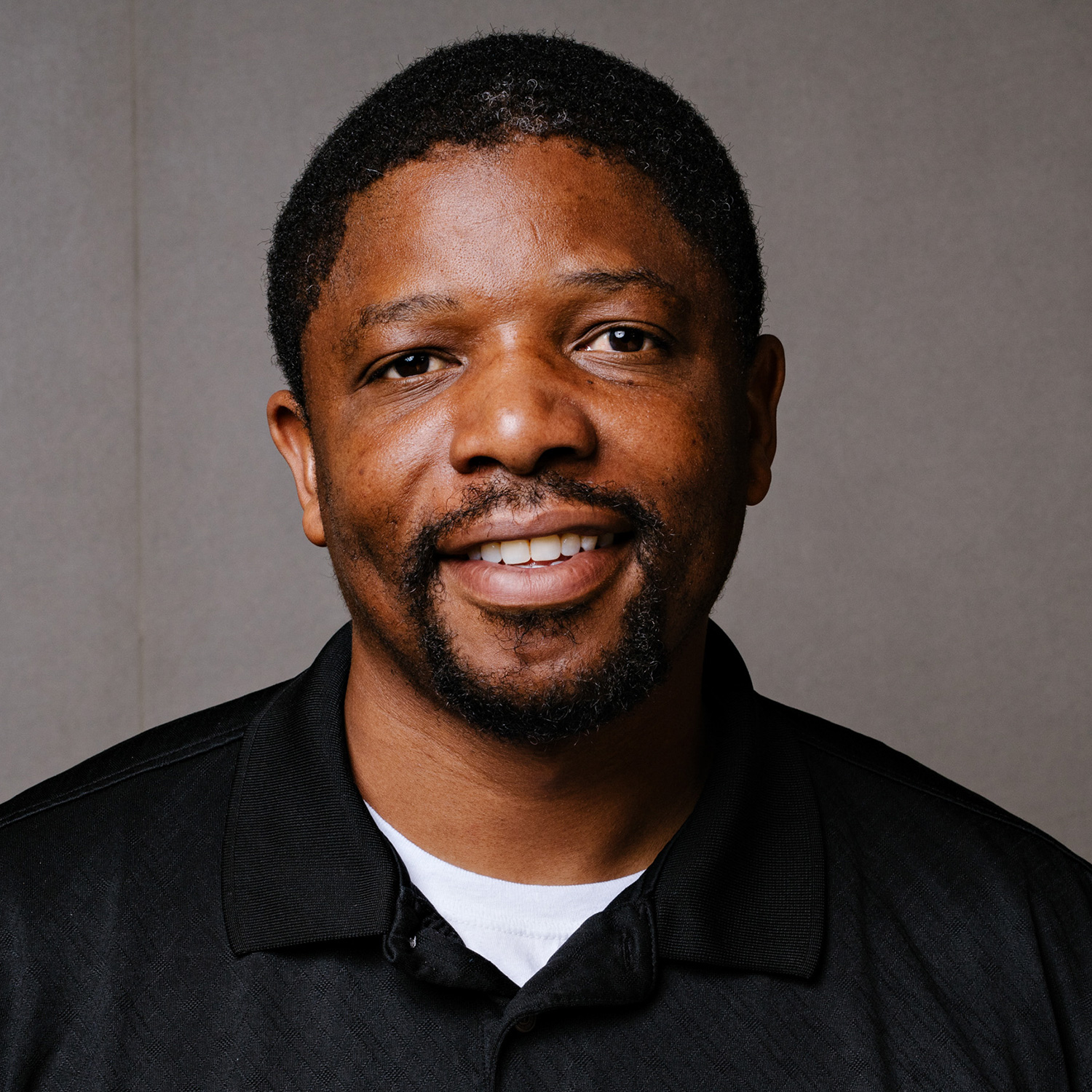
Firefighters check on Kelly McClenthen, who returned to check on the damage to her flooded home in the aftermath of Hurricane Irma in Bonita Springs, Florida
I had increasingly intense visions of harming my wife.
That’s not quite right. I had been having off-and-on images of violent events for years—seeing myself raped in prison or impaled during car crashes—and they finally became visions of hurting my wife, even killing her. They became so pronounced I had to seek professional help.
It was then that a psychiatrist diagnosed me with Post Traumatic Stress Disorder—nearly a quarter of a century after the triggering event. My mind had not yet fully grappled with what I witnessed as a nine-year-old boy: my hero big brother running home in bloody clothes after he had stabbed a man to death.
The images grew in vividness the more I reported on and wrote about violent crime as the lead columnist for The Sun News in Myrtle Beach, S.C. I’m writing about that experience for the first time in a book,“My Brother Moochie: A Black Family’s Legacy of Race, Murder, and Reconciliation in the American South,” scheduled for release next spring. A taste:
“I’d get up in the morning and squeeze my eyes shut in the shower as the warm water made its way down my body while visions of my wife’s bloodied body flooded my mind, picking up where they left off the day before. Sometimes they would come in the form of nightmares scaring me awake in the middle of the night. Sometimes they would have me kicking and screaming in my sleep until Tracy would shake me from their grip. Mostly they waited until I could see and process everything around me.
I’d take a deep breath, say a quick prayer, hope my heart would stop pounding so loudly, get dressed. I’d hug Lyric, my only daughter, maybe tap Kyle on the head before kissing Tracy softly on the lips – I vowed to never leave the house without a kiss from her – walk out the front door and hop into my blue Ford Explorer Sport Trac.
Usually within the first three minutes of my 20-minute drive to the office, I’d begin the routine anew, squeezing my eyes tight even while approaching stop lights and stop signs and making my way onto one of our area’s busiest stretches of highway. That’s when I’d start violently thrusting my head from side to side, again and again and again, hard enough to feel as though my brain was banging against my skull. I played football for ten years. Not one hit on the field had ever made my head feel that way.
I’d pull into the parking lot of The Sun News, shut off the engine, take another long, slow deep breath and make my way into the newsroom, but not before plastering a smile on my face. For years, such was my life. I told no one. Not Tracy, not my family, not friends. No one.”
The U.S. and a gaggle of small islands in the Atlantic were hit by Hurricane Harvey. The devastation left in its wake is still being tallied as the strongest storm on record, Irma, formed and did the same thing.
At about that time, Mexico was hit by the most powerful earthquake in at least a century.
A video of Rohingya Muslims walking barefoot across barbed wire to avoid Myanmar death squads went viral.
Thousands of Yazidis remain in ISIS captivity, despite the losses the terror group has sustained over the past year.
Activists hung wedding dresses from nooses to protest ungodly Lebanese rape laws.
Scores of people died from flooding and natural disasters far away from the attention of an American media focused on Harvey and Irma.
Did I mention that a white supremacist killed a woman in Charlottesville in broad daylight during a high-profile white supremacist rally?
Helping readers, viewers and listeners better understand man’s inhumanity to man and the humbling power of nature is among the most important work journalists undertake. Those events must be covered, and covered well. Sometimes that means going into harm’s way. It mustn’t mean a loss of perspective.
That’s why during times like these, the best editors and producers must save the most dedicated frontline journalists from themselves, like a football coach who knows when to hide the helmet of the quarterback who just sustained a concussion but is begging to get back in the game.
The best journalists, naturally, will want to push the envelope, while each media organization will crave airing or publishing the incredible work they produce. But editors can’t do that effectively if they don’t know well those they oversee. They must know when a photojournalist’s relentless attempts to get just the right shot—and the next just right shot—can trigger something ugly within her that can have devastating consequences in her private life, or when a reporter has lost his way without realizing he has.
It’s among the hardest decisions a manager will have to make, for those most susceptible to hard-to-detect psychological damage are often those in best position to provide nuance and insights that are difficult, if not impossible, to attain without having faced trauma themselves.
My personal experiences enhanced my abilities to write about violent crime in ways of which others weren’t capable. And it almost cost me everything, because I was hiding my struggles from everyone, including myself.
During times like these, editors and producers can’t let such secrets remain secret. Too much is at stake.


